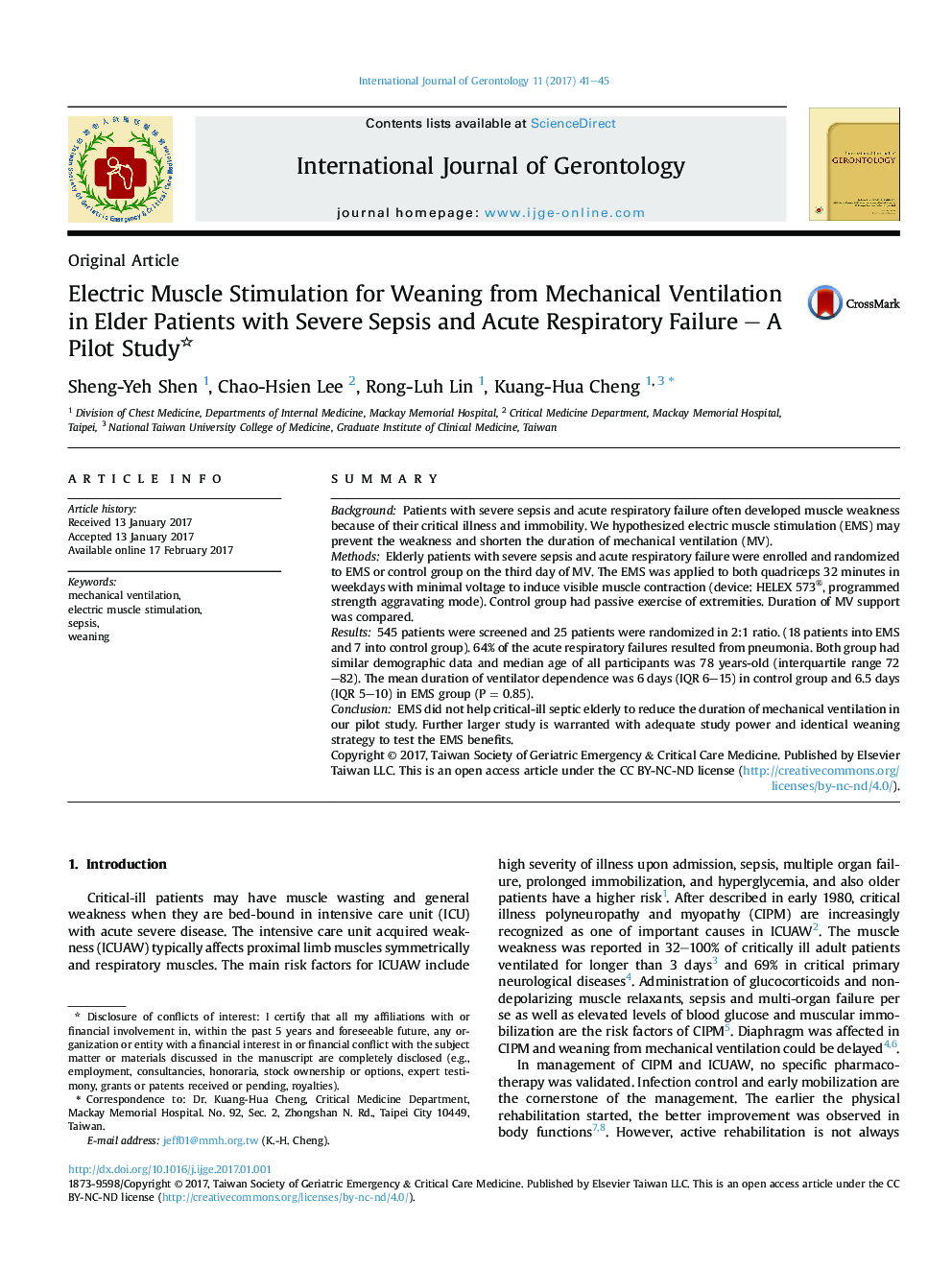| Article ID | Journal | Published Year | Pages | File Type |
|---|---|---|---|---|
| 5662736 | International Journal of Gerontology | 2017 | 5 Pages |
SummaryBackgroundPatients with severe sepsis and acute respiratory failure often developed muscle weakness because of their critical illness and immobility. We hypothesized electric muscle stimulation (EMS) may prevent the weakness and shorten the duration of mechanical ventilation (MV).MethodsElderly patients with severe sepsis and acute respiratory failure were enrolled and randomized to EMS or control group on the third day of MV. The EMS was applied to both quadriceps 32Â minutes in weekdays with minimal voltage to induce visible muscle contraction (device: HELEX 573®, programmed strength aggravating mode). Control group had passive exercise of extremities. Duration of MV support was compared.Results545 patients were screened and 25 patients were randomized in 2:1 ratio. (18 patients into EMS and 7 into control group). 64% of the acute respiratory failures resulted from pneumonia. Both group had similar demographic data and median age of all participants was 78 years-old (interquartile range 72-82). The mean duration of ventilator dependence was 6Â days (IQR 6-15) in control group and 6.5Â days (IQR 5-10) in EMS group (PÂ =Â 0.85).ConclusionEMS did not help critical-ill septic elderly to reduce the duration of mechanical ventilation in our pilot study. Further larger study is warranted with adequate study power and identical weaning strategy to test the EMS benefits.
